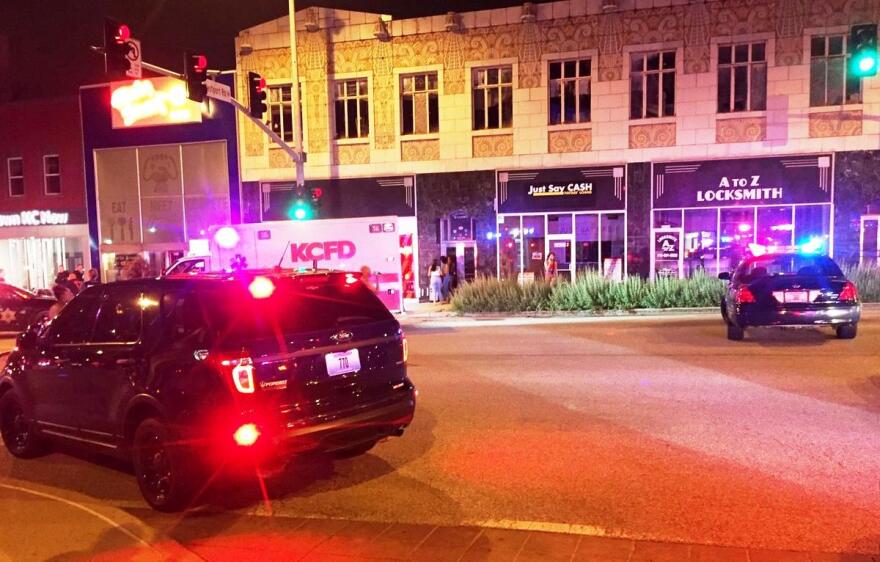By the end of 2019, police expect 150 homicides in Kansas City, most at the point of a gun. Authorities say another 500 people will be shot and wounded.
Many of the survivors, plus their families and neighbors, will spend the rest of their lives dealing with the aftermath of a gunshot wound. A new program is seeking to give people the help they need to heal both their physical and mental wounds.
“Yeah, there's significant bullet fragments throughout my skull and over by my left ear,” says Johnny Waller, Jr., who was shot on his front porch in Omaha when he was a teenage member of the Crips. “I think they said that it was dangerous to remove it, so it was easier to just leave it in there.”
Waller did time in Nebraska for drug dealing. He moved to Kansas City to be with his mother when he was paroled. He says he has headaches, takes Darvocet and has had 20 MRIs. “Financially, it's kind of difficult because some of the medication is expensive," he says.
Waller says that when you feel the searing pain of a gunshot wound, you think about a lifestyle change. "At that point is where you're looking for a way out, right?"
Looking for a way out
Kansas City is trying to figure out how to best help gunshot would survivors.
“Step one is getting their wounds sewn up. Step two is addressing all the trauma that's related to that and helping them step off into a healing path,” Jackson County Prosecutor Jean Peters Baker tells KCUR.
Baker has taken the lead on helping gunshot wound survivors. She says gunshot wounds have a ripple effect because bullets just don’t hit the skin. They’re also fired into homes and cars.
“That impacts the entire block in the entire neighborhood where that shooting occurs because it impacts all of those individuals' safety and security,” she says.
As non-fatal shootings in Kansas City spiked, Baker went to the county legislature in August and got $120,000 for a pilot program at Truman Medical Center to get gunshot survivors early help.
"The goal of the project is to try to provide timely and responsive early intervention for survivors of nonfatal shootings," says Joah Williams, a psychology professor at UMKC who runs RISE, Responsive Individualized Support & Early Intervention.
After being shot, Williams says, everyone has some post-traumatic stress but not everyone will have long-term problems. As part of RISE, he says his nurses and social workers want to identify those people.
“We're really hoping to help address a lot of those different kinds of emotional reactions, traumatic stress kinds of reactions that can have a real cascading kind of effect on different parts of a person's life after they experience a traumatic event,” says Williams
Not one solution
The help people may need is varied.
Johnny Waller turned his life around and just got a master's degree from Rockhurst University, but before that, he needed help paying for medication.
Others may simply need a ride to the grocery store. Still, others need help getting their homes back to normal.
“The cleaning up of that blood in the house. You're left with repairing those windows, those bullet holes," says Damon Daniel with the Ad Hoc Group Against Crime. "Or if you are low income or on a fixed income and you can't afford to fix those things, you're stuck with looking at that, which then retraumatizes an individual and, or family as well.”
A 2017 study from Harbor View Hospital in Seattle says that people wounded by gunfire there are 20 times more likely to be shot again and four times more likely to be killed with a gun.
Supporters of this Truman Med Center program also hope it will prevent more shootings and homicides in Kansas City.
Sam Zeff is KCUR's metro reporter. You can follow Sam on Twitter @samzeff





